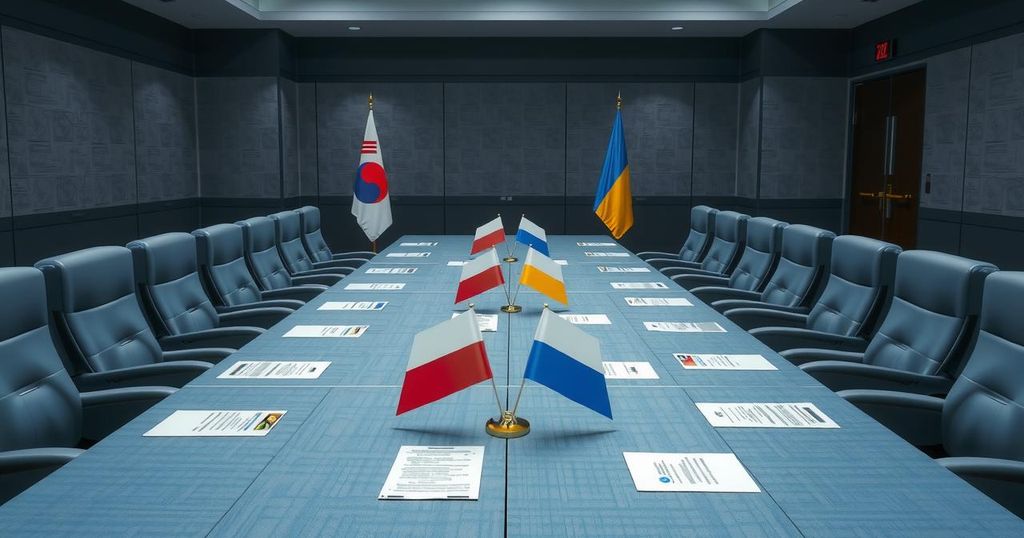South Korea and Ukraine Explore Options for North Korean Prisoners of War
South Korea is ready to accept North Korean soldiers captured by Ukraine if they indicate a desire to defect. Discussions between the two nations’ foreign ministers focus on the treatment of these soldiers, with President Zelensky revealing significant casualties among North Korean troops. Despite denied involvement from Moscow and Pyongyang, the situation remains complex and fraught with humanitarian concerns.
The governments of South Korea and Ukraine are engaging in discussions concerning the future of North Korean prisoners of war. South Korea has signaled its willingness to accept these prisoners, contingent upon their voluntary desire to relocate. In a discussion between Foreign Minister Cho Tae Yul of South Korea and his Ukrainian counterpart Andrii Sybiha, it was communicated that if the soldiers expressed a wish to defect, they would be regarded as South Korean citizens.
According to Ukrainian estimates, North Korea has deployed approximately 11,000 soldiers to support Russia in the ongoing conflict, marking an unprecedented military involvement in a foreign war. Ukrainian President Volodymyr Zelensky revealed that around 4,000 North Korean personnel had been killed or injured during confrontations in Kursk, a region on the Russian border.
Despite Ukrainian assertions, both Moscow and Pyongyang have rejected claims regarding the involvement of North Korean troops in the Ukraine war. A mutual defense agreement signed in November obligates each nation to support the other during external attacks, adding a complex layer to the situation.
In a recent incident, President Zelensky recounted that two wounded North Korean soldiers had been captured. He shared a video featuring one soldier who expressed a desire to remain in Ukraine. Reports indicate that this soldier also reached out to South Korea’s Chosun newspaper inquiring about the possibility of asylum.
The dialogue between the South Korean and Ukrainian foreign ministers reflects urgent concerns regarding the fates of North Korean soldiers in captivity. Former North Korean defector Pak Yusung emphasized the severe repercussions that captured soldiers could face, highlighting the risks of punishment or execution for defectors’ families if they divulge sensitive information to adversaries.
In conclusion, the negotiations between South Korea and Ukraine regarding North Korean prisoners of war highlight a significant humanitarian issue. South Korea’s readiness to accept these soldiers hinges on their willingness to defect. As the conflict continues, the situation emphasizes the grave dangers faced by soldiers and their families, particularly under the harsh regime of North Korea. The involvement of North Korean forces in the Ukraine conflict raises questions about international military alliances and the implications for those wishing to escape tyranny.
Original Source: www.independent.co.uk




Post Comment